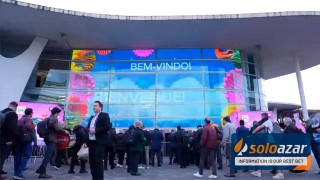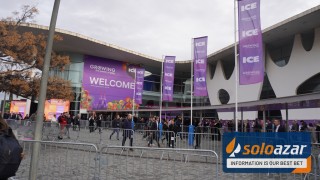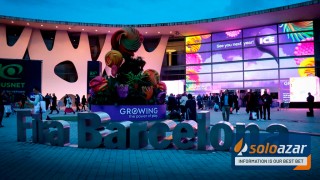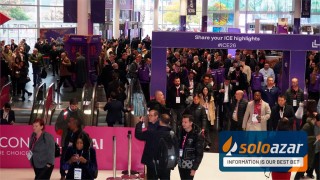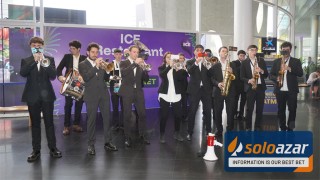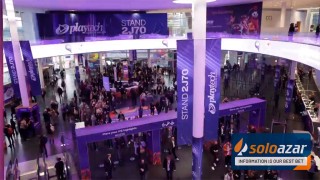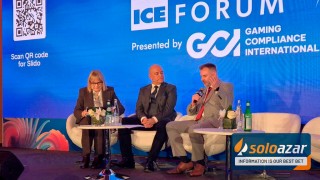Itaú report highlights economic impact of Online betting in Brazil
Friday 16 de August 2024 / 12:00
2 minutos de lectura
(Brasilia).- Banco Itaú’s latest report examines the economic effects of online betting in Brazil, revealing concerns about its impact on consumer spending and the national economy. The study indicates that online betting, including platforms like Jogo do Tigrinho, could represent 1% of Brazil’s GDP, with significant amounts wagered in 2023, affecting purchasing power and economic stability.
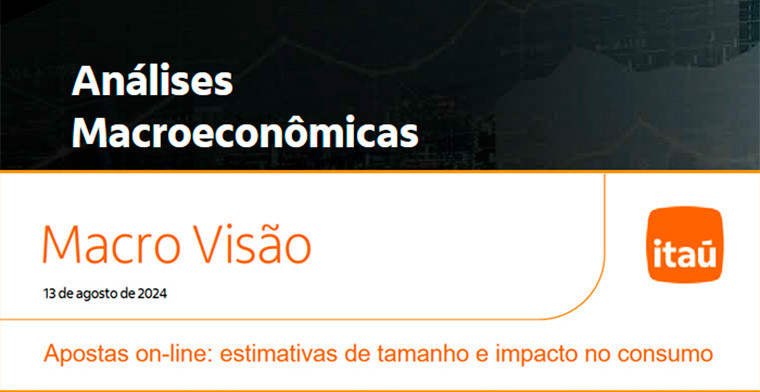
In recent months, the sports betting and online gaming sector - especially the Jogo do Tigrinho - has been accused of sucking the economy dry. After the publication of a survey by the Brazilian Society of Retail and Consumption (SBVC), which showed that 64 per cent of those interviewed said they used their main income for online betting, the betting sector became the great villain of the economy.
Even the request for judicial recovery from the clothing and footwear brand SideWalk blames the popularisation of sports betting sites, called bets, as factors that led to the crisis in the group's companies. The text portrays people who stop eating certain types of food and even put off buying furniture to place bets.
‘Billions of reais are destined for these sports betting sites, removing such values from immediate consumption in Brazil, weakening the purchasing power of the final consumer, responsible for turning the wheel of the national economy,’ write SideWalk's lawyers.
In another survey carried out by the Brazilian Association of Financial and Capital Market Entities (Anbima) in partnership with Datafolha, it was found that 14% of the Brazilian population, around 22 million people, bet some money online in 2023 and that betting surpasses various types of investment by Brazilians and that the only investment that remains ahead of betting in terms of followers is savings, with 25% of the population having invested their money in this investment.
According to XP Investimentos' estimate of the sector, the Brazilian betting market already amounts to the equivalent of 1% of the country's GDP (Gross Domestic Product). ‘The report cites BNLData, according to which Brazilians bet between R$100 billion and R$120 billion in 2023. Companies in the sector would make around 13 per cent of the amount circulated, or at least R$13 billion.
But it's not quite like that...
Banco Itaú released on Tuesday (13) the report ‘Online betting: estimates of size and impact on consumption’ produced by the Macroeconomic Research Department of Itaú Unibanco S.A.
According to the bank's analysis, which BNLData had access to, the growth of the online gambling and betting sector has sparked debate about its current size and possible impacts on the performance of the retail sector, and the economy as a whole.
Two methods were used to estimate the current size of the Brazilian online betting and gaming market. Based on the balance of payments, net spending on betting was estimated at R$24 billion per year. Based on the betting industry's spending on marketing, it was estimated that the sector's annual revenue is between R$8 and R$20 billion, with a median value of R$12 billion.
According to the report, there was no relevant impact from the growth of betting on the performance of the retail sector.
‘We found no relevant impact of the growth in betting on the performance of the retail sector, since our models based on macroeconomic variables showed no increase in the average error in the recent period.’
Estimating spending from the balance of payments
After presenting the development of the sector's regulatory framework since 2018, the author points out that the current predominant model is that companies operating in the country are regulated and based outside of Brazil and, for this reason, the balance of payments is a valuable source of information for estimating spending on gambling.
The Itaú Bank report also points out that, due to the early stage of the market in the country, with incipient regulation, it is not possible to ‘rule out the possibility that there are expenses that are not faithfully captured by the balance of payments statistics, either because the funds are kept in Brazil or because of the activities of companies that are not regulated in any country, acting outside the law’.
According to the study, methodological changes made by the Central Bank make it possible to estimate the size of the online gaming and betting sector. In January 2023, the Central Bank made a change to its data recording system to allow transactions in the gaming and betting sector to be accounted for. From then on, the service fees paid to the company responsible for the game or bet would be allocated to the ‘Recreational services, services related to historical and cultural heritage and other personal services’ account; and the prizes paid out and received by the winners would be recorded under ‘Secondary income - Other transfers’. After this change, there was a sharp rise in the values of both accounts, shown in the graphs below.
The account where fees paid are recorded jumped from R$2.5 billion before the methodological change to R$26.6 billion in the 12 months to June 2024 (1st graph). The difference, R$24.1 billion, was probably due to the inclusion of service fees paid for games and bets in this item.
The account where prizes are recorded went from a net inflow of R$6.1 billion before the methodological change (R$9.5 billion inflows and R$3.3 billion outflows) to a net inflow of R$6.3 billion (R$53.7 billion inflows and R$47.7 billion outflows). This shows a significant increase in both outflows (amount wagered) and inflows (amount received by punters who win). The difference between the accounts before and after the methodological change probably reflects the inclusion under this heading of prizes paid and received in games and bets.
The sum of fees (outflows) and prizes (net inflows) totalled R$23.9 billion in the 12 months to June. This figure is equivalent to 0.2 per cent of Brazil's GDP, 0.3 per cent of total consumption and 1.9 per cent of the wage bill.
‘It's important to note that our calculation includes both the amounts wagered and the amounts received by punters when they win bets. If we disregard the amounts received by punters when they win, we would have an exaggerated estimate of consumer spending on bets. To illustrate this, we estimate that total spending excluding the amounts received by winning bettors is R$68.2 billion, which is substantially higher than our estimate for net spending of R$23.9 billion (accumulated over the 12 months to June),’ the report states.
Estimating revenue from marketing expenses
Another method for estimating spending on online games is based on how much companies in the sector spend on marketing. ‘By identifying how much these companies spend on marketing, and what fraction this represents of their total revenue, we can arrive at an estimate of the sector's total revenue,’ he says.
The study estimates that the sector spends between R$5.8 and R$8.8 billion on marketing. A survey carried out in May 2023 by the newspaper O Estado de S. Paulo estimated that betting companies spent R$3.5 billion on football sponsorship (clubs, competitions and television broadcasts). ‘We hypothesised that this spending represents between 40% and 60% of total marketing spending, since companies also spend on online ads, TV, radio, advertising with influencers, among other means,’ he says.
Based on international examples, the hypothesis was adopted that companies operating in Brazil spend between 45% and 75% of their revenues on marketing. ‘We consulted some financial statements of international publicly traded companies for the period between 2021 and the first quarter of 2024. In the UK, a more mature market where betting has been regulated for longer (2005), marketing spend has been around 20 per cent of gross revenue. In the United States, where the betting market is still in the expansion phase (since 2018 it has been regulated by most states), companies still spend more on marketing, close to 30 per cent of their revenues. The Brazilian market, on the other hand, is even more recent than the American one, as the national regulation law was only passed in December 2023. We believe that a good approximation (there is no balance sheet data yet) is that companies based in Brazil spend what US companies spent a few years ago - in 2021, for example, marketing spending in the US ranged from 48% to 75% of revenues,’ he says.
The study estimates that the sector's revenues will be between R$8 and R$20 billion, with a median value of R$12 billion. ‘The uncertainty stems from the limited degree of transparency that has characterised the sector to date. The table below combines different hypotheses for the percentage of revenue spent on marketing (from 45% to 75%), and different hypotheses for the total annual spend on marketing (R$5.8 to R$8.8 billion).’
Has the growth of the betting sector had a significant impact on overall consumption?
The report questions whether online betting is growing at the expense of the retail sector. ‘Debates about the performance of the retail sector this year have been commonplace, and one of the explanations raised by those who believe that the sector is underperforming is that consumers have been spending more and more on online betting, and reducing their consumption of goods. Our models do not support this hypothesis. Retail sales have performed as expected. Our macroeconomic model for retail sales is based on four variables: income, credit, consumer confidence and savings. We have not identified any increase in the projection error based on macroeconomic variables, as can be seen in the graphs below.’
‘It should be noted that consumption, captured by GDP, is orders of magnitude broader than the retail sector represented in the stock market, which may help explain the apparent disconnect between income and revenues in the retail sector. In short, the approximation is not very appropriate,’ concludes the report.
Categoría:Reports
Tags: Sin tags
País: Brazil
Región: South America
Event
ICE Barcelona 2026
19 de January 2026
Merkur Group Shines in Barcelona with Triple ICE Triumph
(Espelkamp/Barcelona).- Merkur Group secures three prestigious international accolades for operational excellence, social commitment, and standout exhibition experience.
Friday 06 Feb 2026 / 12:00
Eduardo Aching: "ICE 2026 was an exceptional event for Konami and its casino partners"
(Barcelona, SoloAzar Exclusive).- Eduardo Aching, Vice President of iGaming & International Gaming Operations at Konami Gaming, reflects on the company’s standout participation at ICE 2026, the strong reception to Solstice 49C and Konami Online Interactive, and the strategic push toward emerging regulated markets and expanded global partnerships.
Friday 06 Feb 2026 / 12:00
Belatra Games Strengthens LatAm Expansion and Innovation Strategy After ICE Barcelona 2026
(Barcelona, SoloAzar Exclusive).- Kateryna Goi, Chief Marketing Officer at Belatra Games, shares her assessment of the company’s participation in ICE Barcelona 2026, the quality of industry engagement at the event, and the strategic priorities shaping Belatra’s growth in 2026, with a strong focus on Latin America and narrative-driven innovation.
Friday 06 Feb 2026 / 12:00
SUSCRIBIRSE
Para suscribirse a nuestro newsletter, complete sus datos
Reciba todo el contenido más reciente en su correo electrónico varias veces al mes.










